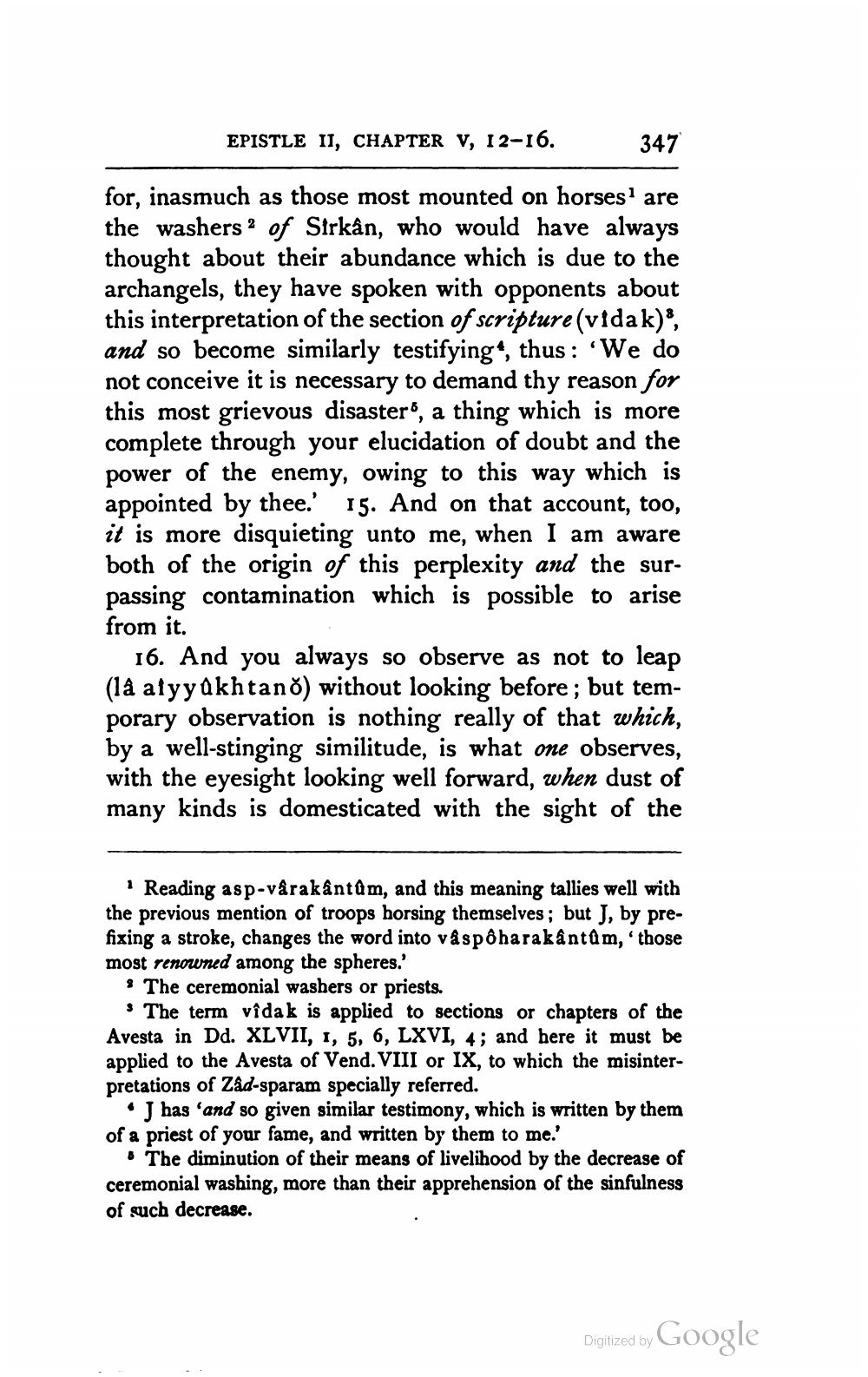________________
EPISTLE II, CHAPTER V, 12-16. 347 for, inasmuch as those most mounted on horses are the washers 2 of Sirkân, who would have always thought about their abundance which is due to the archangels, they have spoken with opponents about this interpretation of the section of scripture (vida k), and so become similarly testifying“, thus: We do not conceive it is necessary to demand thy reason for this most grievous disaster, a thing which is more complete through your elucidation of doubt and the power of the enemy, owing to this way which is appointed by thee.' 15. And on that account, too, it is more disquieting unto me, when I am aware both of the origin of this perplexity and the surpassing contamination which is possible to arise from it.
16. And you always so observe as not to leap (là afyyakhtano) without looking before; but temporary observation is nothing really of that which, by a well-stinging similitude, is what one observes, with the eyesight looking well forward, when dust of many kinds is domesticated with the sight of the
Reading asp-vårakantům, and this meaning tallies well with the previous mention of troops horsing themselves; but J, by prefixing a stroke, changes the word into våspôharakantům, those most renowned among the spheres.'
The ceremonial washers or priests. $ The term vîdak is applied to sections or chapters of the Avesta in Dd. XLVII, 1, 5, 6, LXVI, 4; and here it must be applied to the Avesta of Vend. VIII or IX, to which the misinterpretations of Zad-sparam specially referred.
• J has 'and so given similar testimony, which is written by them of a priest of your fame, and written by them to me.'
The diminution of their means of livelihood by the decrease of ceremonial washing, more than their apprehension of the sinfulness of such decrease.
Digitized by Google




